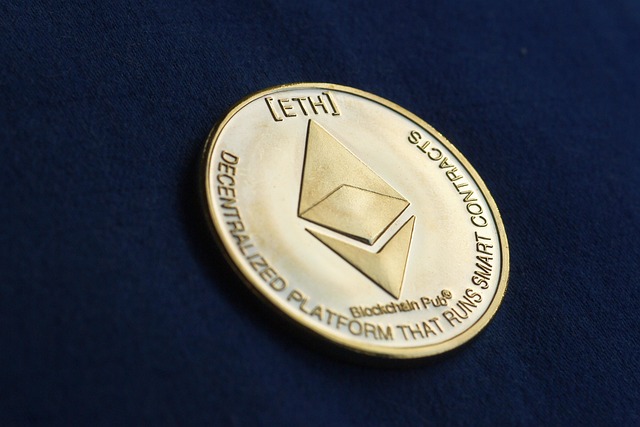DeFi System Innovations: Pioneering the Future of Finance
DeFi System Innovations: Pioneering the Future of Finance

Decentralized Finance: A Game Changer in the Financial World
Decentralized Finance, or DeFi, has emerged as a game changer in the financial world.

One of the key benefits of DeFi is its ability to provide financial services to individuals who are unbanked or underserved by the traditional banking system. With DeFi, anyone with an internet connection and a smartphone can access a wide range of financial products and services, such as lending, borrowing, and trading. This unprecedented level of financial inclusion has the potential to uplift communities and economies by providing equal opportunities to all, regardless of their socio-economic background. Moreover, the transparency and immutability of blockchain technology utilized in DeFi instill trust and security in financial transactions, mitigating the risks often associated with intermediaries in the centralized financial system.
Understanding the Basics of Decentralized Finance
Decentralized finance, also known as DeFi, is a term that has been buzzing around the financial world lately. So, what exactly is it? Well, in simple terms, DeFi refers to a financial system that operates without the involvement of intermediaries, such as banks or other traditional financial institutions. Instead, it leverages blockchain technology and smart contracts to enable direct transactions and interactions between the participants.
One of the key principles of decentralized finance is the democratization of financial services. By removing the need for intermediaries, DeFi aims to provide equal access to financial products and services to individuals around the world, regardless of their location, social status, or financial background. This means that anyone with an internet connection can participate in DeFi and take advantage of its benefits. Whether it’s borrowing and lending, trading assets, or even engaging in complex financial contracts, the possibilities are virtually limitless in the world of decentralized finance.
Exploring the Advantages of Decentralized Finance
Decentralized finance (DeFi) has emerged as a game changer in the financial world, offering numerous advantages over traditional centralized systems. One of the key benefits of DeFi is its ability to provide financial services to the unbanked population. With DeFi platforms, individuals who have been excluded from the traditional banking system can now access a wide range of financial services, including lending, borrowing, and investing. By leveraging blockchain technology, DeFi eliminates the need for intermediaries such as banks, enabling direct peer-to-peer transactions. This not only reduces costs but also enables faster and more efficient financial transactions.
Another advantage of decentralized finance is the increased transparency it brings to the financial ecosystem. In traditional finance, transactions and contracts are often opaque, making it difficult for individuals to know the exact terms and conditions they are agreeing to. However, with DeFi, smart contracts are used to automate and enforce agreements. These self-executing contracts are stored on the blockchain, making them tamper-proof and easily auditable. This level of transparency gives users greater confidence in the integrity of the financial system and minimizes the risk of fraud or manipulation. Additionally, since the blockchain is a public ledger, all transactions can be verified by anyone, further enhancing trust and accountability within the DeFi ecosystem.
The Role of Smart Contracts in Revolutionizing Finance
Smart contracts have emerged as a powerful tool in revolutionizing the way financial transactions are conducted. These self-executing programs running on blockchain technology have the potential to eliminate the need for intermediaries, such as banks and lawyers, in various financial processes. With smart contracts, individuals and businesses can securely and transparently automate transactions, reducing the risk of fraud and human error.
One of the key advantages of smart contracts is their ability to enforce the terms of an agreement automatically. Once the conditions encoded in the contract are met, the contract executes itself without the need for manual intervention. This not only saves time and effort but also minimizes the chances of misunderstandings or disputes between parties. Furthermore, the transparency of smart contracts allows all participants in a transaction to access and verify the details, ensuring a higher level of trust and accountability. As a result, smart contracts are poised to streamline processes like payments, asset transfers, and even complex financial instruments like derivatives, making them faster, more efficient, and more accessible to a wider range of individuals and businesses.
• Smart contracts eliminate the need for intermediaries, such as banks and lawyers, in financial transactions.
• They automate transactions securely and transparently, reducing the risk of fraud and human error.
• Smart contracts enforce the terms of an agreement automatically once conditions are met.
• This saves time and effort while minimizing misunderstandings or disputes between parties.
• The transparency of smart contracts allows all participants to access and verify transaction details, ensuring trust and accountability.
• Smart contracts streamline processes like payments, asset transfers, and complex financial instruments like derivatives.
Bringing Financial Inclusion to the Unbanked with Decentralized Finance
Decentralized finance, or DeFi, has emerged as a game changer in the financial world, bringing the promise of financial inclusion to the unbanked population.

One of the key advantages of DeFi is its ability to provide financial services without the need for intermediaries or a centralized authority. This means that individuals who lack access to traditional banking services can now participate in a wide range of financial activities, such as saving, lending, borrowing, and investing, through decentralized platforms. These platforms, built on top of blockchain technology, provide a level playing field for all users, ensuring transparency, security, and equal opportunities for everyone, irrespective of their background or location. By eliminating the barriers imposed by traditional financial systems, DeFi has the potential to unlock new opportunities for the unbanked, empowering them to take control of their finances and improve their economic prospects.
Decentralized Exchanges: A New Paradigm in Trading
Decentralized exchanges have emerged as a game-changing innovation in the world of trading. Unlike traditional centralized exchanges that rely on intermediaries to facilitate transactions, decentralized exchanges operate on blockchain technology, enabling peer-to-peer trading without the need for third-party involvement. This new paradigm promises increased security, transparency, and privacy for traders.
One of the key advantages of decentralized exchanges is their ability to eliminate the single point of failure that exists in centralized platforms. With no central authority controlling the exchange, the risk of hacking, fraud, or manipulation is significantly reduced. Additionally, decentralized exchanges offer users the freedom to trade directly from their digital wallets, ensuring full control over their funds at all times.

Lending and Borrowing in the Decentralized Finance Ecosystem
One of the most remarkable aspects of decentralized finance (DeFi) is the opportunity it provides for individuals to lend and borrow without the need for traditional financial intermediaries. In the decentralized finance ecosystem, anyone can become a lender by depositing their cryptocurrency into a lending platform or protocol. These funds are then made available for borrowers to access, creating a peer-to-peer lending system that operates on a global scale. This disintermediation eliminates the need for banks or other financial institutions, enabling individuals to directly interact and transact with each other.
Moreover, borrowing in the decentralized finance ecosystem offers numerous advantages for users. With the absence of intermediaries, borrowers can often access loans more quickly and at lower interest rates compared to traditional financial institutions. The decentralized nature of these platforms also ensures greater transparency and security, as transactions are recorded on a public blockchain, making them resistant to tampering or manipulation. Additionally, borrowing in DeFi allows individuals to access loans without needing to provide extensive personal information or meet stringent credit requirements, opening up opportunities for the unbanked or underbanked populations to access much-needed financial services.
Decentralized Stablecoins: A Solution to Volatility in Cryptocurrencies
Decentralized stablecoins have emerged as a valuable solution to address the wild volatility that plagues the cryptocurrency market. Unlike traditional cryptocurrencies like Bitcoin and Ethereum, which experience significant price fluctuations, stablecoins are designed to maintain a stable value by pegging them to other assets, such as fiat currencies or commodities. This stability is achieved through different mechanisms, including collateralization with cryptocurrencies, reserves held in traditional currencies, or algorithmic adjustments.
The main advantage of decentralized stablecoins is that they offer a reliable means of exchange and store of value within the cryptocurrency ecosystem. This stability makes them particularly useful for individuals and businesses looking to transact with cryptocurrencies without being exposed to their inherent volatility. For example, a business that accepts payments in decentralized stablecoins can avoid the risk of suddenly losing a significant portion of its revenue due to a price drop. Moreover, stablecoins can provide a bridge between the traditional financial system and the world of cryptocurrencies, facilitating the adoption of blockchain technology in mainstream commerce.
Decentralized Insurance: Mitigating Risks in a Trustless Environment
Decentralized insurance is set to disrupt the traditional insurance industry by offering innovative solutions that mitigate risks in a trustless environment. Unlike traditional insurance policies that rely on intermediaries, decentralized insurance operates on a blockchain network, making it transparent and more secure. This technology enables peer-to-peer transactions, cutting out the middleman and reducing costs. By harnessing the power of smart contracts, decentralized insurance eliminates the need for trust between parties, as the terms and conditions are coded into the contract, ensuring automatic execution in case of a claim.
One of the key advantages of decentralized insurance is its ability to provide coverage to individuals who are typically excluded from the traditional insurance system. With decentralized insurance, anyone in the world can access and participate in the marketplace, regardless of their location or financial status. This opens up opportunities for financial inclusion, empowering the unbanked and underbanked populations to protect their assets and livelihoods. Moreover, decentralized insurance promotes accountability and transparency, as all transactions and claims are recorded on the blockchain, leaving an immutable trail of evidence that can be accessed and verified by all parties involved.
The Future of Decentralized Finance: Challenges and Opportunities
The future of decentralized finance holds immense potential, but it also presents its fair share of challenges. One of the major obstacles that decentralized finance must overcome is regulatory uncertainty. As this emerging industry continues to evolve, governments around the world are grappling with how to regulate decentralized financial systems and ensure consumer protection. Striking the right balance between fostering innovation and safeguarding against potential risks is no easy task, and it will require thoughtful collaboration between regulators, industry participants, and other stakeholders.
Another challenge lies in addressing scalability issues. While decentralized finance offers exciting opportunities to democratize financial services, the existing blockchain infrastructure may not be able to handle the volume and speed required for mass adoption. In order for decentralized finance to reach its true potential, scalability solutions need to be developed to ensure that transactions can be executed quickly and cost-effectively. This will require ongoing research and development efforts to optimize blockchain technology and explore alternative consensus mechanisms. Additionally, user-friendly interfaces and intuitive applications will need to be developed to attract mainstream users and make decentralized finance more accessible to the masses.
What is decentralized finance?
Decentralized finance, often referred to as DeFi, is a financial system that operates on blockchain technology. It aims to remove intermediaries and give individuals more control over their financial activities.
How does decentralized finance revolutionize the financial world?
By eliminating intermediaries like banks and brokers, decentralized finance allows for faster, cheaper, and more accessible financial services. It opens up opportunities for financial inclusion and empowers individuals to be in control of their own money.
What are the advantages of decentralized finance?
Decentralized finance offers several advantages, including greater financial freedom, reduced fees, increased transparency, improved security, and faster transactions.
What role do smart contracts play in decentralized finance?
Smart contracts are self-executing contracts with predefined rules and conditions encoded on the blockchain. They automate financial agreements, removing the need for intermediaries and ensuring trustless transactions in decentralized finance.
How does decentralized finance bring financial inclusion to the unbanked?
Decentralized finance allows anyone with an internet connection to access financial services, even if they don’t have access to traditional banking systems. This opens up opportunities for the unbanked population to save, borrow, invest, and participate in the global economy.
What are decentralized exchanges?
Decentralized exchanges are platforms that facilitate peer-to-peer trading of cryptocurrencies without the need for intermediaries. They provide a more secure and transparent way to trade digital assets compared to centralized exchanges.
Can you explain lending and borrowing in the decentralized finance ecosystem?
In decentralized finance, lending and borrowing are done through smart contracts. Individuals can lend their cryptocurrencies to others and earn interest, while borrowers can access funds without the need for traditional credit checks or collateral.
How do decentralized stablecoins address volatility in cryptocurrencies?
Decentralized stablecoins are cryptocurrencies that are pegged to a stable asset, such as a fiat currency. They aim to maintain a stable value, reducing the volatility often associated with other cryptocurrencies. This stability makes them more suitable for everyday transactions and financial activities.
What is decentralized insurance in the context of finance?
Decentralized insurance, also known as DeFi insurance, uses blockchain technology to offer risk coverage without the need for traditional insurance intermediaries. It allows individuals to protect their assets and mitigate risks in a trustless environment.
What are the future challenges and opportunities for decentralized finance?
The future of decentralized finance holds both challenges and opportunities. Challenges include regulatory uncertainties, scalability issues, and potential security risks. However, there are also opportunities for innovation, broader adoption, and the transformation of traditional financial systems.
Todays Featured Product:
Buy, exchange and grow your crypto securely with a Ledger hardware wallet, combined with the Ledger Live app. It’s never been easier to keep your crypto safe and accessible. Buy direct from Ledger.com and get todays Special Offers Here.




